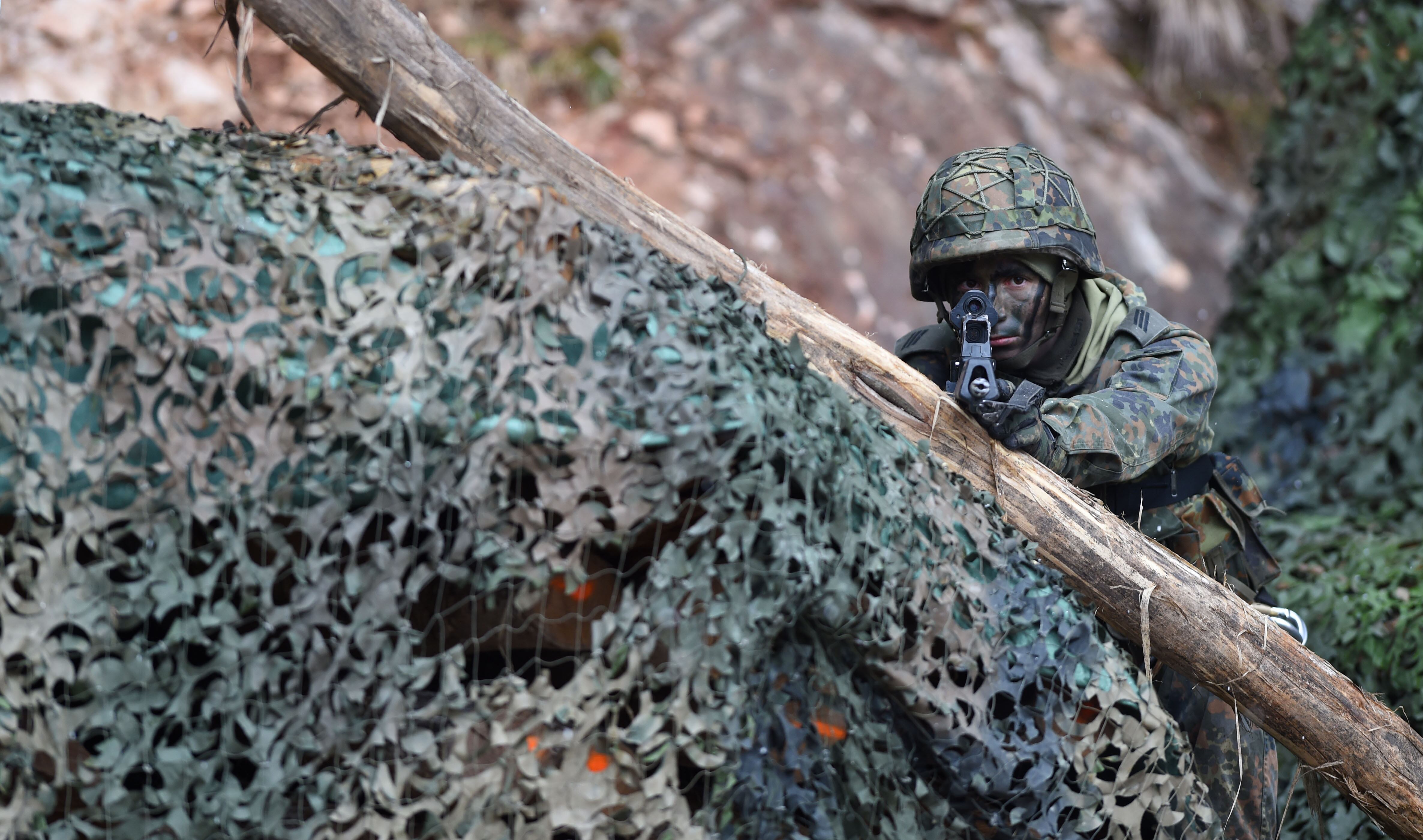COLOGNE, Germany — The French Air Force has successfully practiced a nuclear strike mission, sending aircraft on an 11-hour mission to sneak a nuclear-capable cruise missile through simulated enemy air defenses and nail it into the sands of a test range south of Bordeaux.
The Feb. 4 mission, billed by the Armed Forces Ministry as “operation-representative,” featured a Rafale fighter jet releasing an ASMP-A missile, made by MBDA. Officials designed the drill to include “all phases characteristic of a nuclear-dissuasion mission,” including successive refueling by C-135 and A-330 tankers before aiming the missile — without a nuclear warhead — at a missile test area near the town of Biscarrosse.
“This success reinforces the technical and operational credibility of the deterrence that the airborne component has continuously maintained through the Air Force since 1964,” reads an Armed Forces Ministry statement from Feb. 5.
Besides its aerial deterrence leg, the French military has submarines capable of firing nuclear-tipped missiles.
Monday’s test came days after Russia and the United States said they would abandon a key arms-control agreement that has kept Europe free of the threat of intermediate-range nuclear weapons for decades.
RELATED

In an apparent effort to counter the appearance of a retaliatory move aimed at Russia, the French ministry statement stresses that the test mission had been long planned.
“There is no reason to believe that the timing of the test due to anything other operational or technical reasons,” agreed Bruno Tertrais, deputy director of the Fondation pour la Recherche Strategique think tank in Paris. He said similar tests occur roughly once per year.
“The alternative would have been to cancel the test for fear that it was understood as response to INFT suspensions — that would have been fairly ridiculous,” Tertrais told Defense News, using shorthand for the 1987 Intermediate-Range Nuclear Forces Treaty.
Sebastian Sprenger is associate editor for Europe at Defense News, reporting on the state of the defense market in the region, and on U.S.-Europe cooperation and multi-national investments in defense and global security. Previously he served as managing editor for Defense News. He is based in Cologne, Germany.








